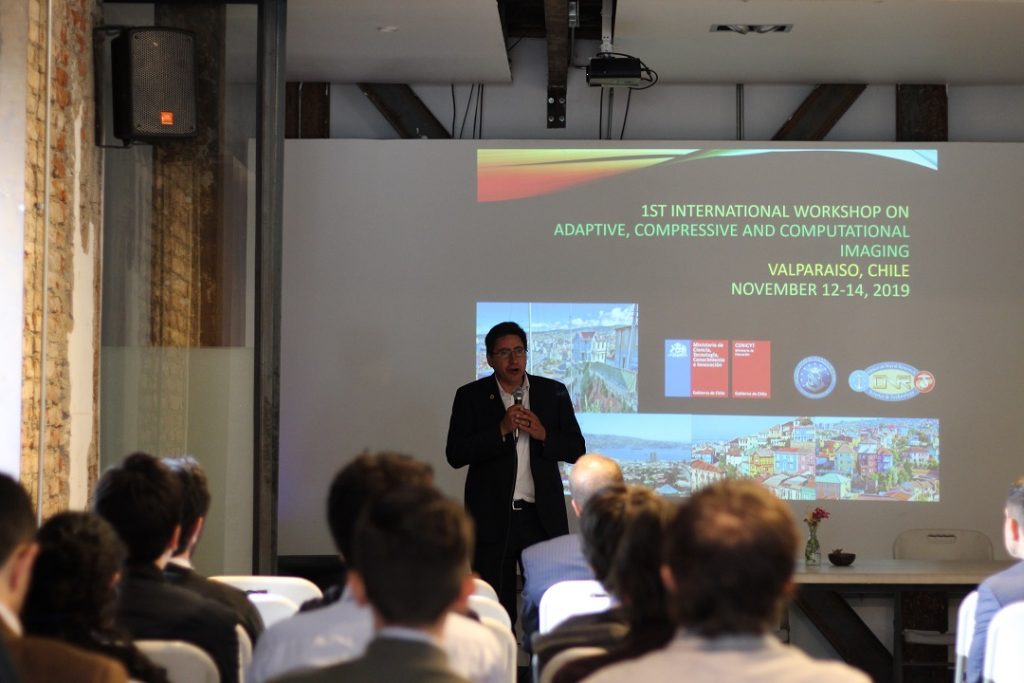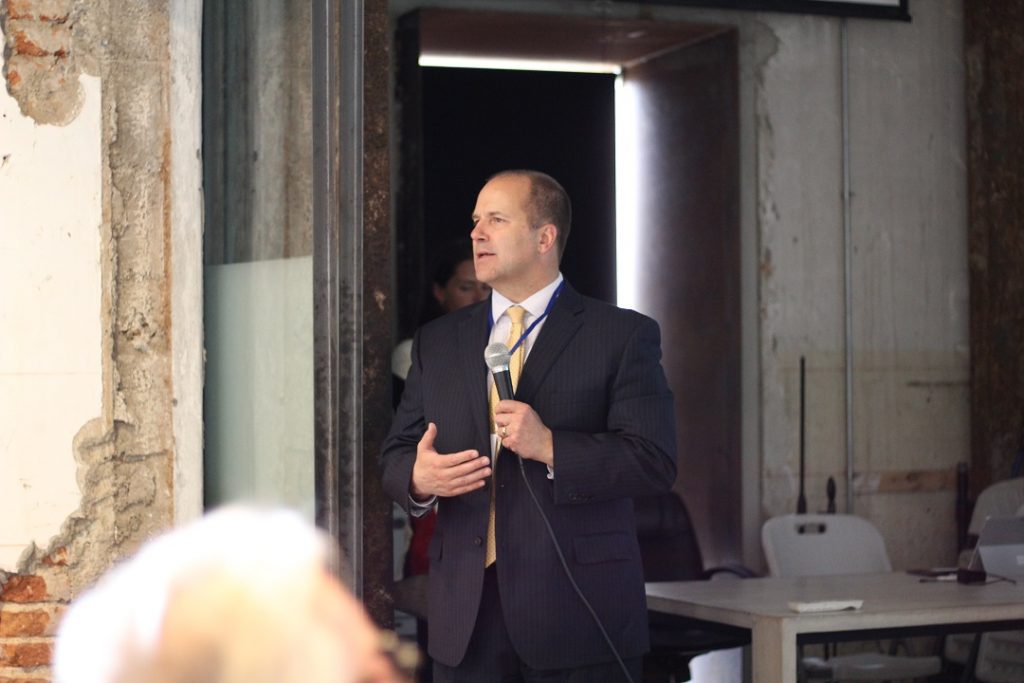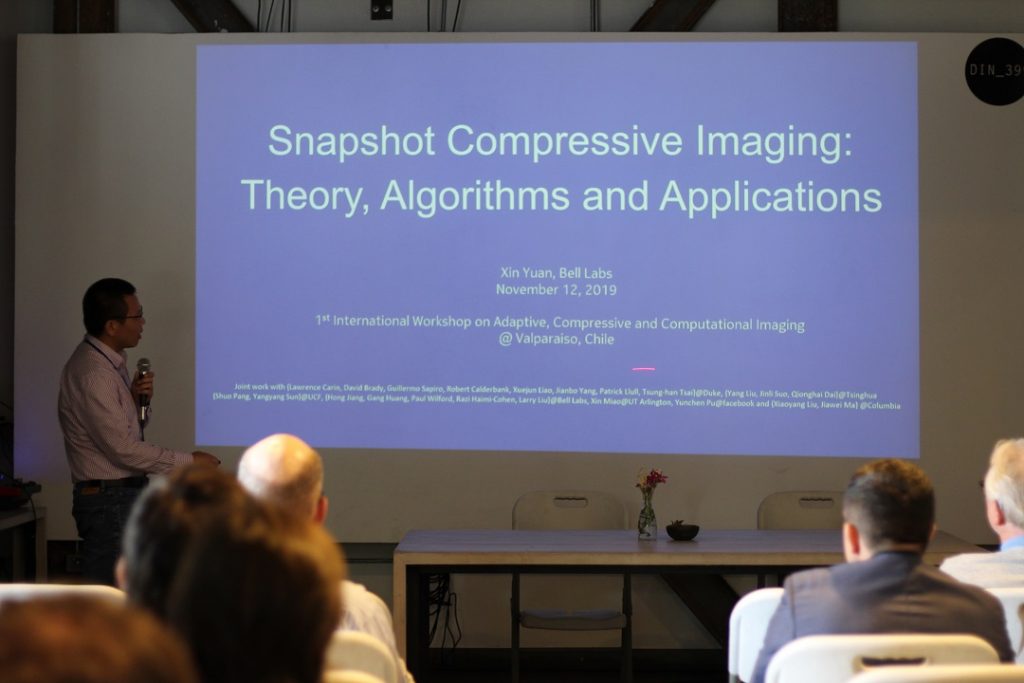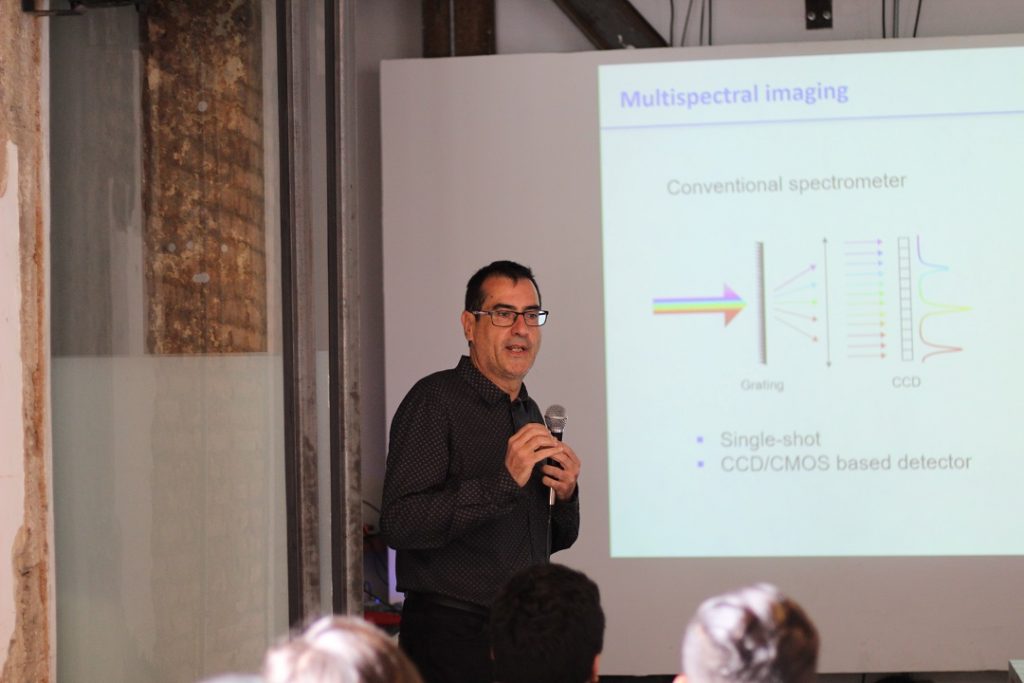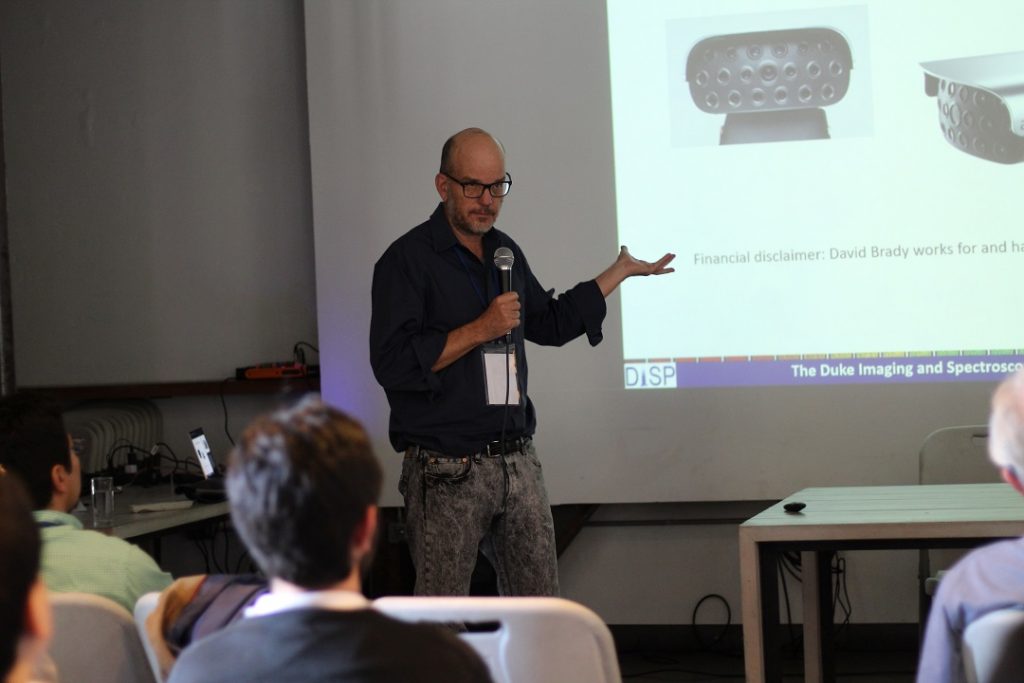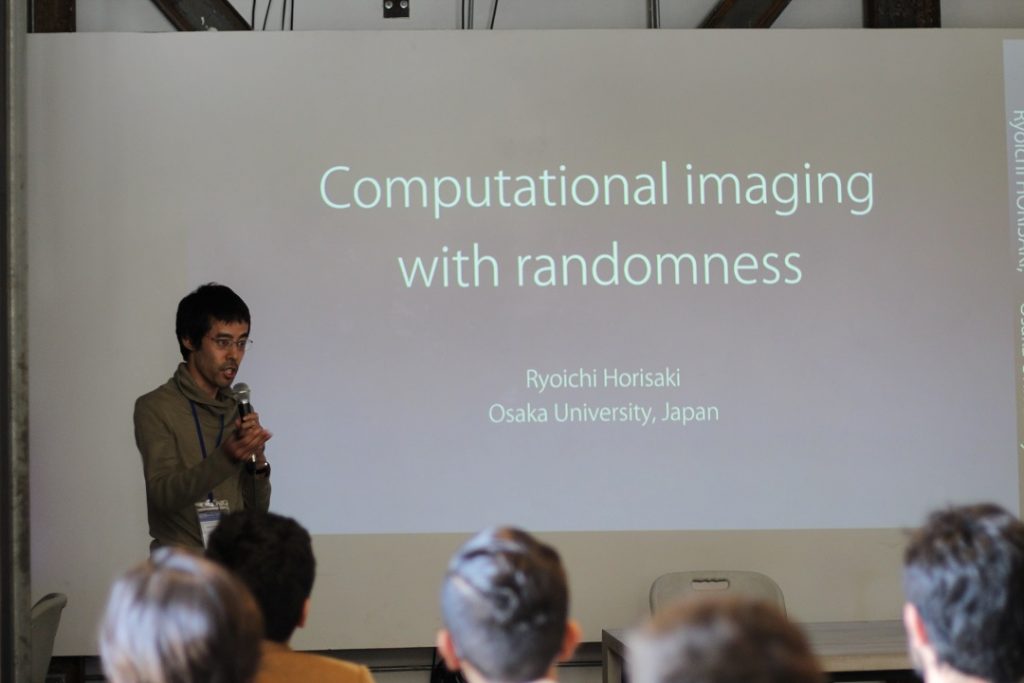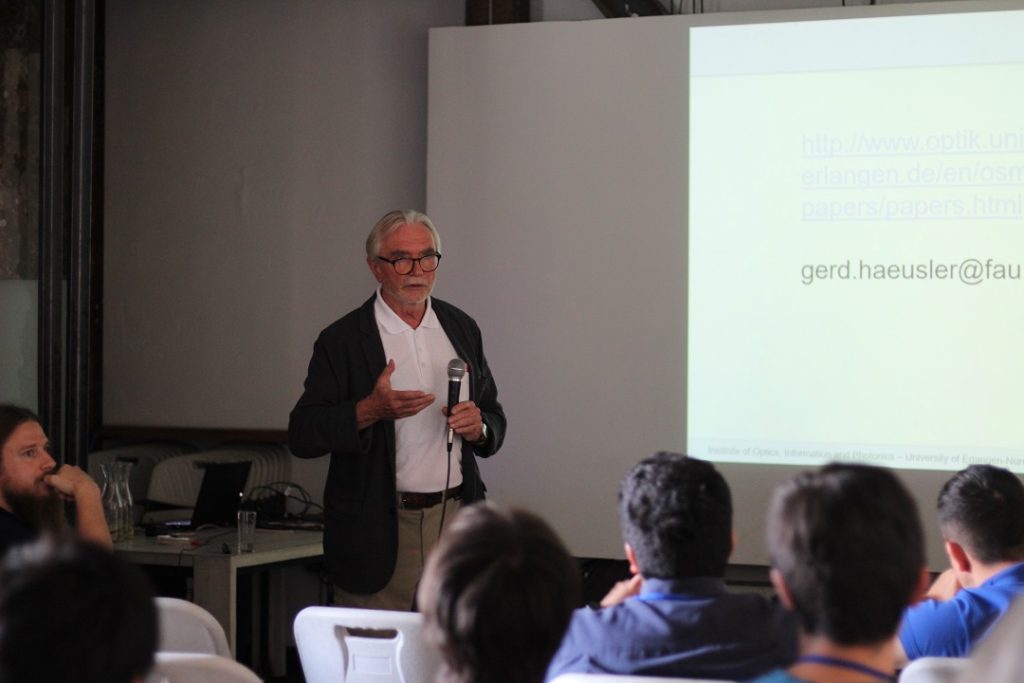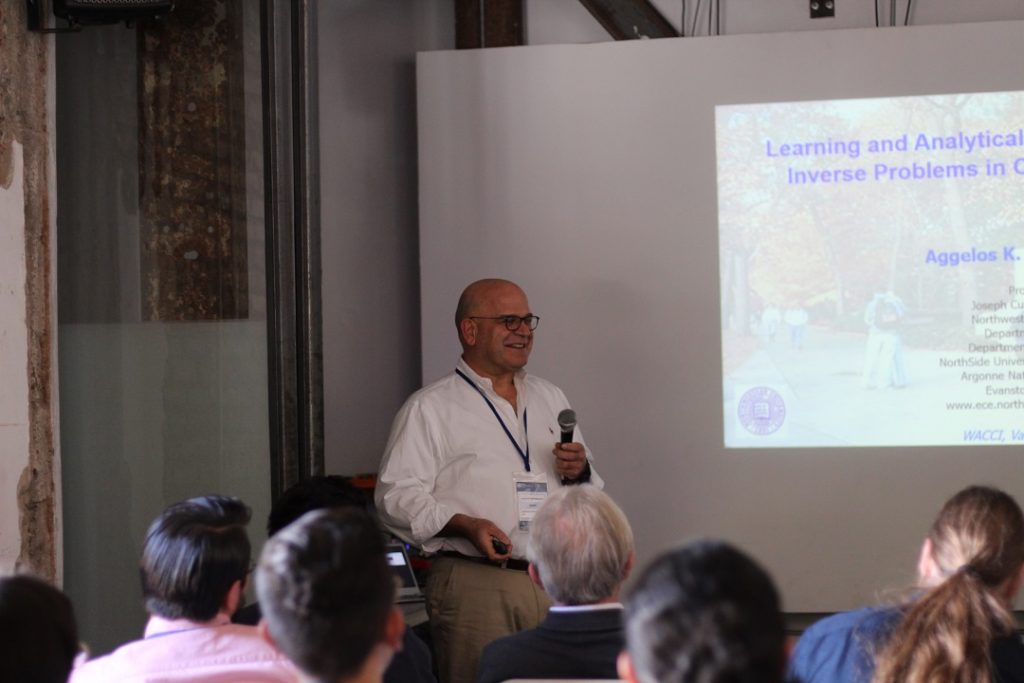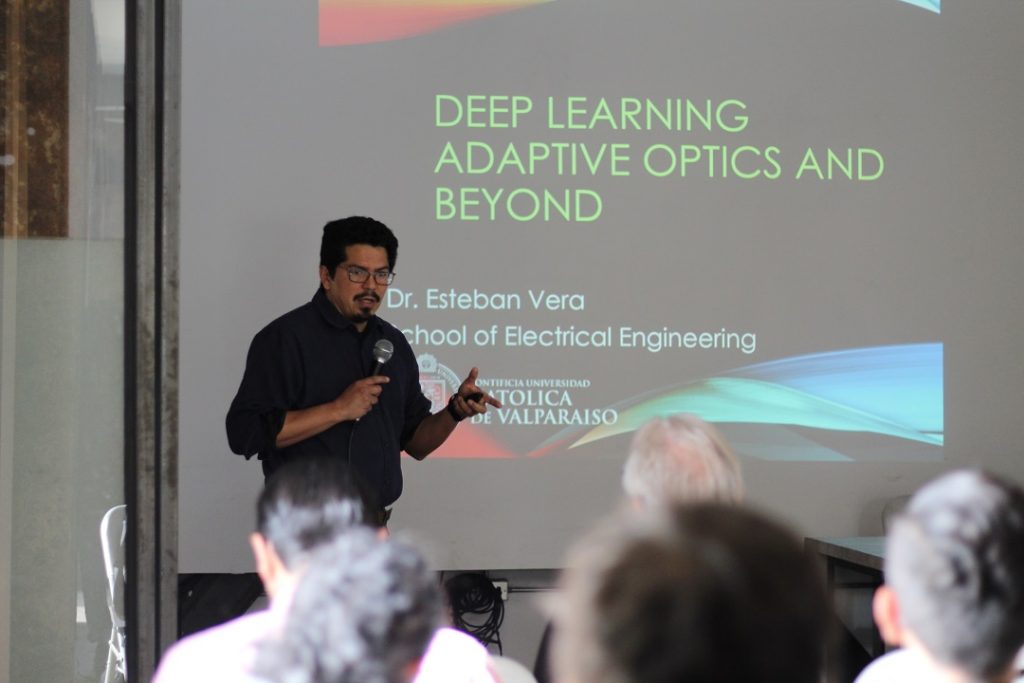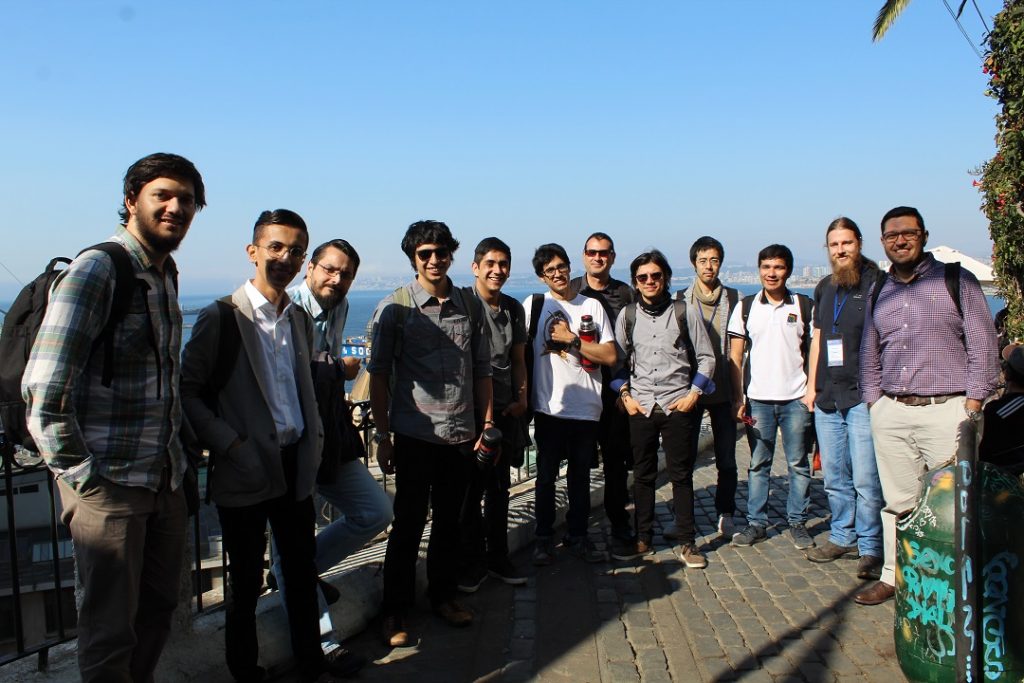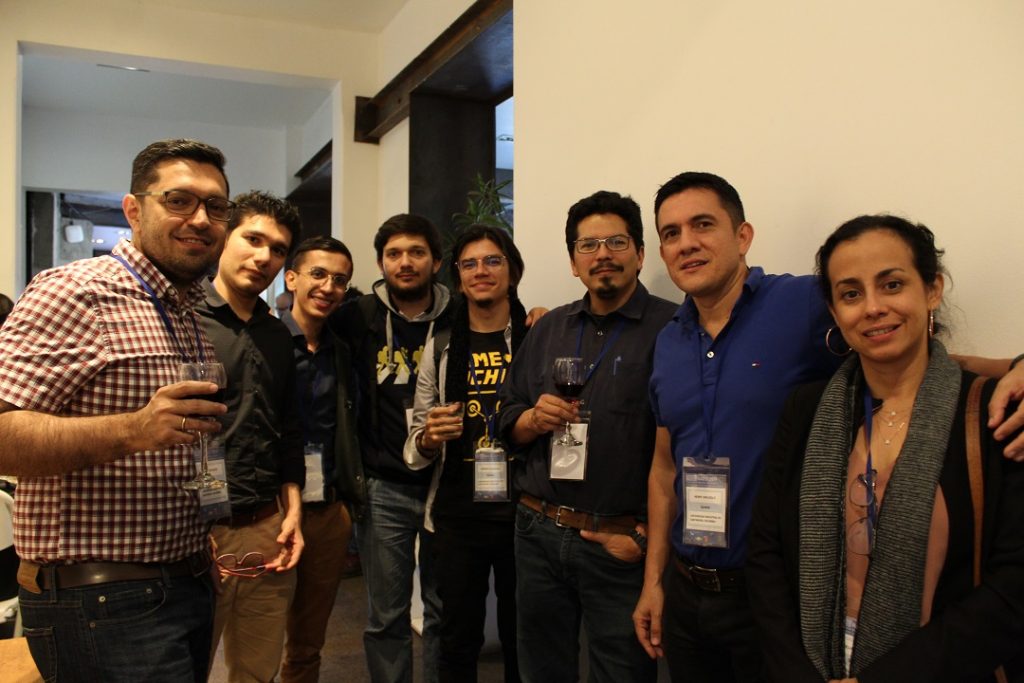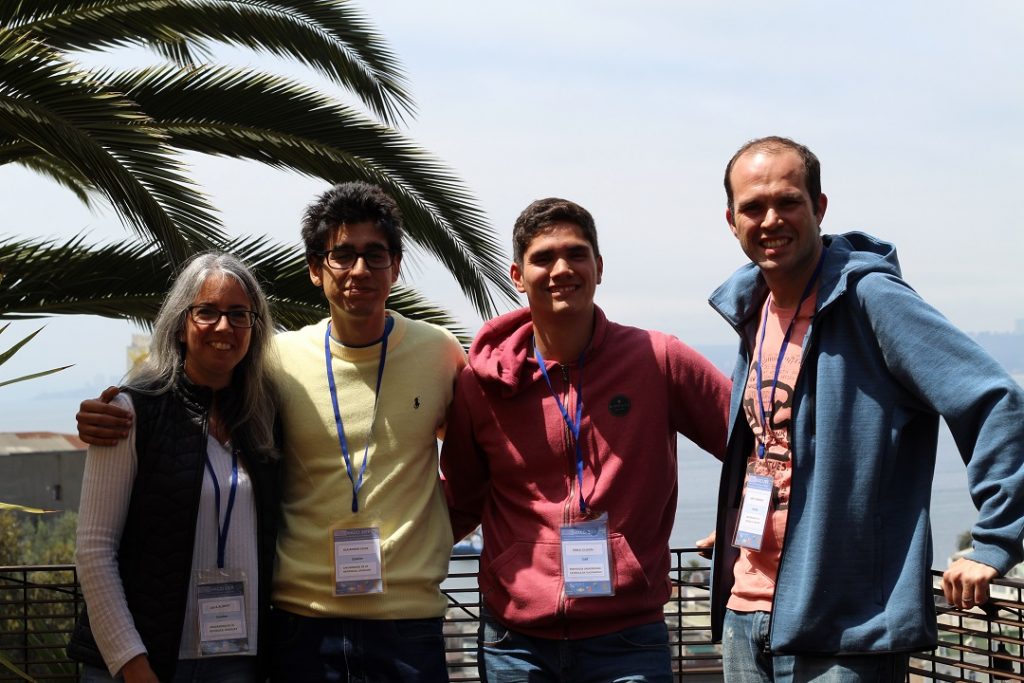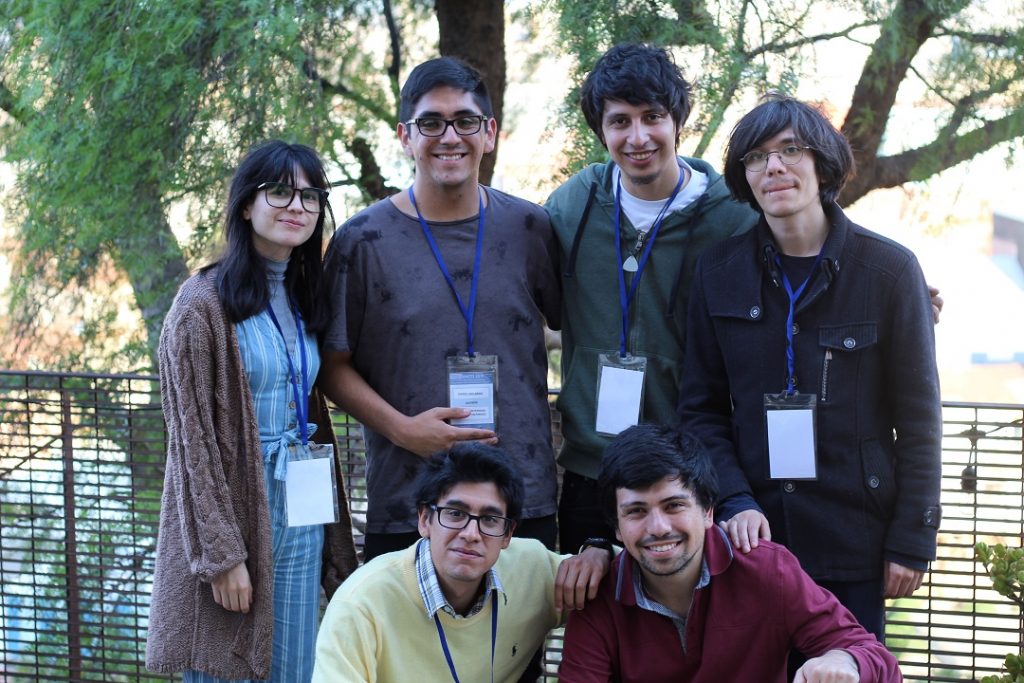Organized and chaired by professors Esteban Vera of the School of Electrical Engineering, Pontificia Universidad Católica de Valparaíso, and professor Pablo Meza from the Universidad de la Frontera, this event reunited a varied group of worldwide, leading-edge researchers in optical sensing, computational imaging and signal processing.
The first International Workshop on Adaptive, Compressive and Computational Imaging (WACCI) 2019 was held in Valparaíso, Chile, from November 12th to 14th 2019. The three-day workshop gathered 35 researchers from the United States, Germany, Japan, Spain, Colombia, Uruguay and Chile. On November 15th, the workshop was concluded with a visiting tour to the European Southern Observatory (ESO) Paranal Observatory facilities in northern Chile.
The scientific program considered oral and poster presentations including six keynote talks given by Dr. David Brady, Duke University, USA; Dr. Aggelos Katsaggelos, Northwestern University, USA; Dr. Enrique Tajahuerce, Universitat Jaume I, Spain; Dr. Ryoichi Horisaki, Osaka University, Japan; Dr. Gerd Häusler, retired professor from the Friedrich-Alexander University of Erlangen-Nuremberg, Germany; and Dr. Xin Yuan, from the Nokia Bell-Labs, USA.
The workshop
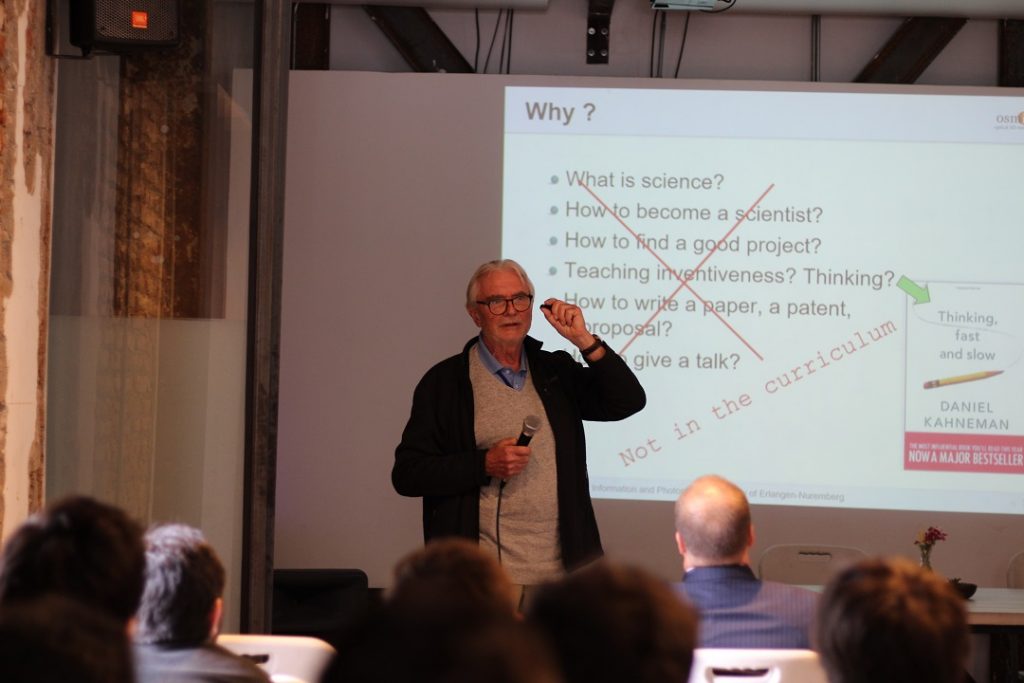
After the foreword by the chairman, professor Vera, Dr. Rhett Jefferies (ONRG) presented about the wide range of funding opportunities available for Chile and Latin America working in imaging. Then, the opening plenary talk: How to research? A tribute to Adolf Lohmann, was given by Dr. Häusler, sharing his experience as a researcher since being a Ph.D. student of Alfred Lohmann, one of the fathers of the field of optical computing. After lunch, Dr. Yuan opened the track related to compressive imaging giving his talk “Snapshot Compressive Imaging: Theory, Algorithms and Applications”, leading to a range of presentations covering compressive spectral, polarimetric and temporal imaging. The last talk of the day was given by Prof. Henry Arguello from the Universidad Industrial de Santander, Colombia. The first day ended with the poster presentation session, where students and young researchers shared their current research progress while enjoying the welcome reception.
Dr. Tajahuerce was responsible to open the second morning by sharing his research related to single-pixel imaging. After several presentations related to the use of coded apertures for compressive temporal imaging and phase retrieval, Dr. Horisaki from Osaka University gave his talk entitled “Computational Imaging with randomness”, showing the power of using deep neural networks to solve the imaging through scattering medium problem. The afternoon session started with Dra. Julia Alonso, Universidad de la República, Uruguay, talking about focal stack imaging and ended with the plenary talk given by professor David Brady, Duke University, who talked about the current and future developments of gigapixel smart cameras that could change our perspectives on how sports television and surveillance will happen in a very short timespan. During the evening, all researchers gathered and relaxed during a nice ocean view banquet done at the Portofino restaurant.
The last day of the workshop started with a talk from the chair, Dr. Vera, regarding the usage of deep learning in wavefront sensing, which could have great impact in the next generation of telescopes in construction in Chile. Then, Dr. Marcos Díaz from Universidad de Chile shared his perspectives on satellite opportunities for computational imaging, followed by a coffee break. Later on, Dr. Fernández from Universidad de la República, Uruguay, explained about his adventures into optical image processing. Right after lunch, Dr. Katsaggelos from Northwestern University gave his plenary talk entitled “Solving Inverse Problems in Computational Imaging.
The responsible of the closing plenary talk was Prof. Häusler, going in depth into his latest developments in three-dimensional computational imaging. Then, the poster/presentation award prize for young researchers was given to Felipe Guzmán, PUCV, who received the seminal book “Optical Imaging and Spectroscopy” from the author himself, Dr. David Brady. Finally, the chair closed the workshop with a short presentation with the findings and conclusions that summarized the event, where there is a clear trend in changing the way the vast majority of ill-posed inverse problems in computational imaging are being tackled moving away from traditional analytic techniques to the usage of artificial intelligence approaches such as deep learning.
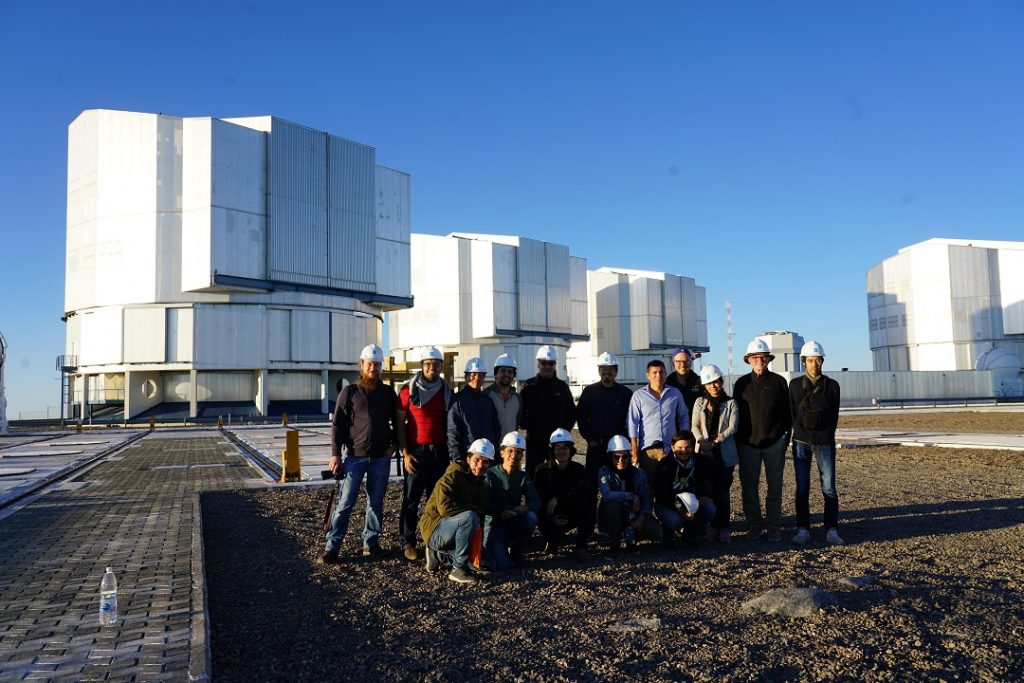
After the workshop, a huge part of the participants travel together to Antofagasta, in northern Chile, to visit to the Paranal Observatory, European Southern Observatory (ESO). Once there, the assistants were guided by the chief engineer, Maxime Boccas, through a thorough technical tour visiting one of the very large telescopes, the control room, the coating plant facility and the residence.
Reactions
“This was a great event for me (…) I am now retired, but still a consultant from time to time. What I like is to travel and teach people. Not just optics, but how to become a researcher”, emphasizes Prof. Häusler, who seemed highly enthusiastic to share his experience in this workshop among young students and well-established researchers and professors.
On the other hand, Dr. Brady believes that finding the right path is the best way to go in many of the challenges and applications to make computational imaging systems into the mainstream. That’s something fundamental in the technology industry: “getting the right team together, the right supply chain (…) you need the enduring of components (…)”, he said. In particular, he mentioned that the students can, actually, bring some new ideas in research: “They have a big role in this” (…) “even very young people can now can work on these things”, added.
The students were very enthusiastic about the result of this event. Samuel Pinilla, from the Universidad Industrial de Santander, Colombia said that “I’m very grateful of professor Vera’s team, from the organization to the opportunity he gave to the students to participate. This is a highly valuable effort”, while Camilo Weinberger, from the PUCV’s optoelectronics lab, agrees, he added that he was “ (…) very impressed with the talk that Xin Yuan made, for example, which was about a deep learning system which allows to improve the amount of images that you can obtain from a video”.
Further information
Videos of interviews and presentations will be made available soon through the website of the Optoelectronics Lab, School of Electrical Engineering, PUCV.
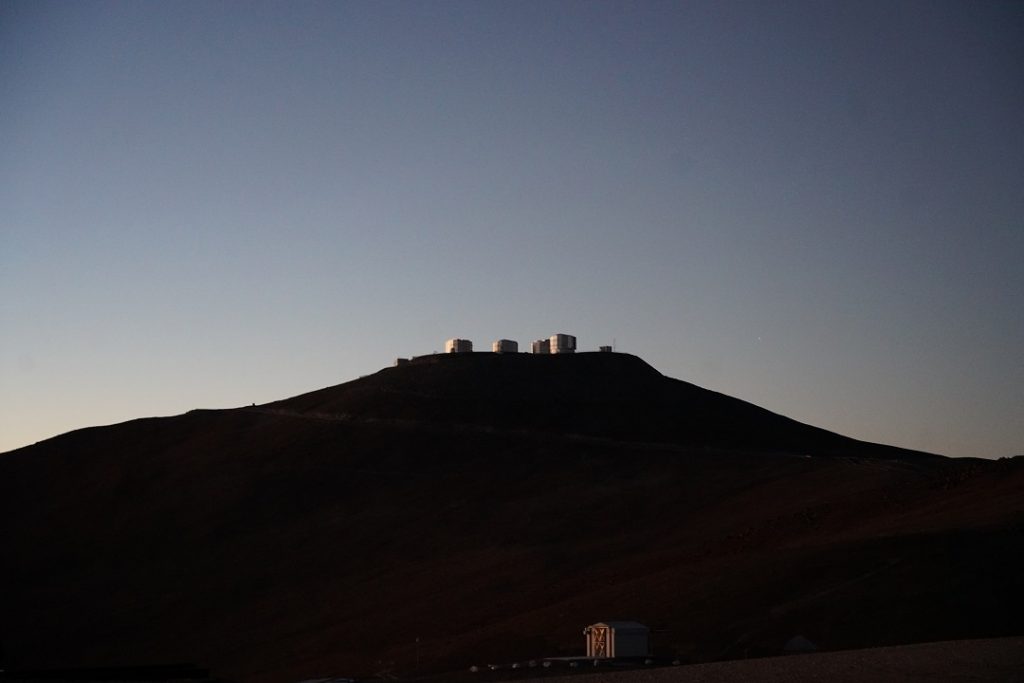
It is expected that this event could be replicated next year in Bucaramanga, Colombia, which will allow to strength even further the international impact of the computational imaging research and efforts made in Latin America.
This workshop was possible thank to the generous support of grants from the Air Force Office of Scientific Research (AFOSR) and Office of Naval Research Global (ONRG) award FA9550-19-1-0414, and the chilean National Commission of Technological and Scientific Research (CONICYT) REDI170539.

